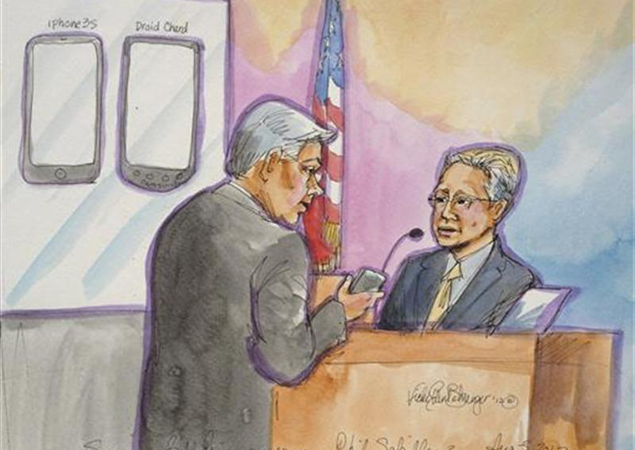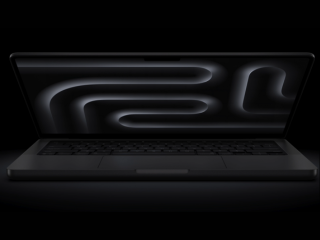- Home
- Mobiles
- Mobiles News
- Courtroom tension boils in Apple Samsung showdown
Courtroom tension boils in Apple-Samsung showdown

As Quinn made his argument to U.S. District Judge Lucy Koh, he slipped in a reference to Koh's pre-trial order blocking sales of some Samsung products -- a subject Koh had forbidden the parties from discussing in front of the jury.
"That was improper," said Koh.
"I apologize, your honor," Quinn responded.
"I have a difficulty believing that was not intentional," said the judge.
Koh allowed the document into evidence. But her admonishment provided the jury with a glimpse into the unusual tensions roiling beneath the lofty courtroom arguments about who might have illegally copied whose technology.
Outside the jury's presence, Apple and Samsung lawyers regularly accuse each other of unfair ambushes, dirty public relations tactics and even doctoring evidence.
Quinn took the extraordinary step of issuing a press release on documents that Koh barred from the trial - an open display of defiance that suggested a legal strategy aimed at creating courtroom chaos. Quinn says he intended nothing of the sort.
Elite trial lawyers normally display a certain professional comity in court, but little of that is apparent in this case. An exasperated Koh has taken to managing the trial like a schoolmarm, regularly scolding her errant charges and resorting to tactics like deducting from the time they have to present evidence if they make superfluous arguments.
The trial, which will determine whether Samsung violated Apple patents in creating competing smartphone and tablet-computing products, is now in its second full week, and is expected to run through the end of August.
Despite some key pre-trial rulings Koh issued against Samsung, during trial itself the judge has given the jury no signals as to who she thinks is in the right.
Rather Koh, a 44-year-old appointee of U.S. President Barack Obama, appears to take the view that if the two sides would just act like grown-ups and pursue rational self-interest rather than sling mud at one another, there wouldn't be a trial at all.
This week, Koh wistfully returned to a idea she first raised at a pretrial hearing over one year ago.
"You didn't file any objections yesterday, and I was hoping that maybe you had settled," she said. But in a case that is more about professional pride and long-term market power than money, there appears to be little basis for a settlement before the verdict.
The two companies are close collaborators in many areas, as Apple is one of Samsung's biggest customers for smartphone and tablet components. Yet in court they seem determined to fight to the death. Their executives pass one another in the hallways without making eye contact. Complex business litigation in front of a jury is sometimes approached as theater, or even sport, but in this courtroom no one is having a lot of fun.
Celebrity trial, Silicon Valley style
The trial has captured the attention of the technology world in part because the stakes are so high: Apple accuses Samsung of copying the iPad and the iPhone, two of the most successful products in the history of technology.
If Apple wins, it may be able to block whole categories of competitors and cement its dominance of next-generation mobile computing. The Korean firm, which is emerging as one of Apple's most powerful global challengers, has counter-attacked by alleging that Apple infringed some of its key wireless technology patents.
But the trial is also titillating to the technorati because of the unusual up-close-and-personal look it has provided into the secret world of Apple.
Phil Schiller, Apple's long-time marketing chief, stood in the hallway before testifying one day last week, making small talk as reporters looked on. Normally seen in blue jeans -- even during product launches- one of Schiller's handlers teased him about his dark suit and yellow tie.
On the witness stand, Schiller talked about how Samsung's products impact ad campaigns; Apple has spent about $647 million on advertising for the iPhone since its 2007 launch, and over $457 million on the two-year-old iPad.
"If you're driving down the highway 55 miles an hour, you have a split second to see a phone on a billboard," Schiller said. "If it looks very, very similar and is copied, whose phone was that?"
Earlier, Apple industrial designer Christopher Stringer took the stand, looking every bit the part in a cream-colored suit and shoulder length hair. He offered trivial details about the Apple design process - people work around a kitchen table! - but in the information vacuum that surrounds Apple's internal workings, trivia tops nothing.
The mountain of documents filed in the case - over 1,600 docket entries and counting - are anything but trivial, though. Detail about licensing negotiations between Apple and the South Korean company, early design ideas for the iPad, and even profit margins for the iPhone and iPad have been revealed. (On every $499 iPad, between $115 and $160 flowed into Apple's cash pile through the end of March 2012.)
Koh is the first Korean-American to ever serve as a district court judge: her parents immigrated to the United States and Koh spent a good deal of her childhood in Mississippi, attending majority African-American public schools, according to a biography from Harvard Law School, her alma mater.
Each day of the trial, Koh trudges to her seat holding a stack of thick binders with both hands. She keeps a close eye on the jury, at one point offering them caffeine.
The judge gave Apple and Samsung 25 hours each to present their evidence, but timing the attorneys' legal arguments has now become one of her favorite devices in trying to get them to conform to her standards.
On Tuesday, Koh said she would allow the jury to hear about a study about consumer confusion between Apple and Samsung products. Samsung attorney Charles Verhoeven asked to reconsider. Koh started the clock, and Verhoeven ultimately convinced Koh to keep the study out. It took six minutes.
Koh said she would charge each side three minutes, prompting Apple attorney Michael Jacobs to moan.
"If it doesn't kill you, it won't hurt you, okay?" Koh said, without smiling.
Appealing to the layman
Both companies opted to put their battle in the hands of a nine-member jury, overseen by Koh. For Samsung, the challenge is to get jurors past any intuitive emotional response - it's a copy! - and focus on the specific legal requirements of each patent.
In other words, to get them to accept the idea that copying, by itself, is not illegal.
Several of the techiest potential jurors were excluded from the panel, including an Apple employee, another from Google, and a man with over 120 patents. But there are still jurors with engineering chops, and as befits the educated population in Silicon Valley, seven out of nine have college degrees.
Only one juror owns an iPhone; a few have Samsungs (but not one of its smartphones).
One morning last week, Koh brought jurors into court one by one. Juror Number 6, a rail-thin young man who favors cargo shorts, flip flops and videogames, sat alone in the jury box in a courtroom packed with dark-suited lawyers and journalists clattering on their laptops.
"I just want to find out whether, since we were together on Tuesday afternoon, have you read or heard anything about this case?" she asked. "No," the juror replied simply.
Koh's jury poll was also a result of Quinn's tactics. Samsung had released a press statement that contained links to documents which Koh ruled could not be shown to them, and Apple accused Samsung of jury tampering.
The South Korean company, generally considered the underdog in the case, only needs one holdout juror to deny Apple a win.
Copyright Thomson Reuters 2012
For details of the latest launches and news from Samsung, Xiaomi, Realme, OnePlus, Oppo and other companies at the Mobile World Congress in Barcelona, visit our MWC 2026 hub.
Related Stories
- Samsung Galaxy Unpacked 2026
- iPhone 17 Pro Max
- ChatGPT
- iOS 26
- Laptop Under 50000
- Smartwatch Under 10000
- Apple Vision Pro
- Oneplus 12
- OnePlus Nord CE 3 Lite 5G
- iPhone 13
- Xiaomi 14 Pro
- Oppo Find N3
- Tecno Spark Go (2023)
- Realme V30
- Best Phones Under 25000
- Samsung Galaxy S24 Series
- Cryptocurrency
- iQoo 12
- Samsung Galaxy S24 Ultra
- Giottus
- Samsung Galaxy Z Flip 5
- Apple 'Scary Fast'
- Housefull 5
- GoPro Hero 12 Black Review
- Invincible Season 2
- JioGlass
- HD Ready TV
- Latest Mobile Phones
- Compare Phones
- Apple iPhone 17e
- AI+ Pulse 2
- Motorola Razr Fold
- Honor Magic V6
- Leica Leitzphone
- Samsung Galaxy S26+
- Samsung Galaxy S26 Ultra
- Samsung Galaxy S26
- MacBook Pro 16-Inch (M5 Max, 2026)
- MacBook Pro 16-Inch (M5 Pro, 2026)
- Apple iPad Air 13-Inch (2026) Wi-Fi + Cellular
- Apple iPad Air 13-Inch (2026) Wi-Fi
- Huawei Watch GT Runner 2
- Amazfit Active 3 Premium
- Xiaomi QLED TV X Pro 75
- Haier H5E Series
- Asus ROG Ally
- Nintendo Switch Lite
- Haier 1.6 Ton 5 Star Inverter Split AC (HSU19G-MZAID5BN-INV)
- Haier 1.6 Ton 5 Star Inverter Split AC (HSU19G-MZAIM5BN-INV)
















